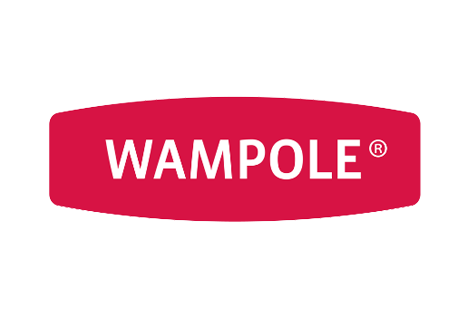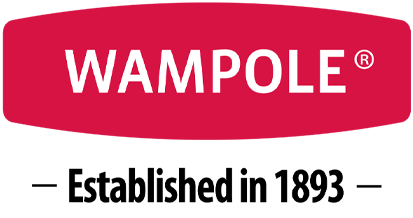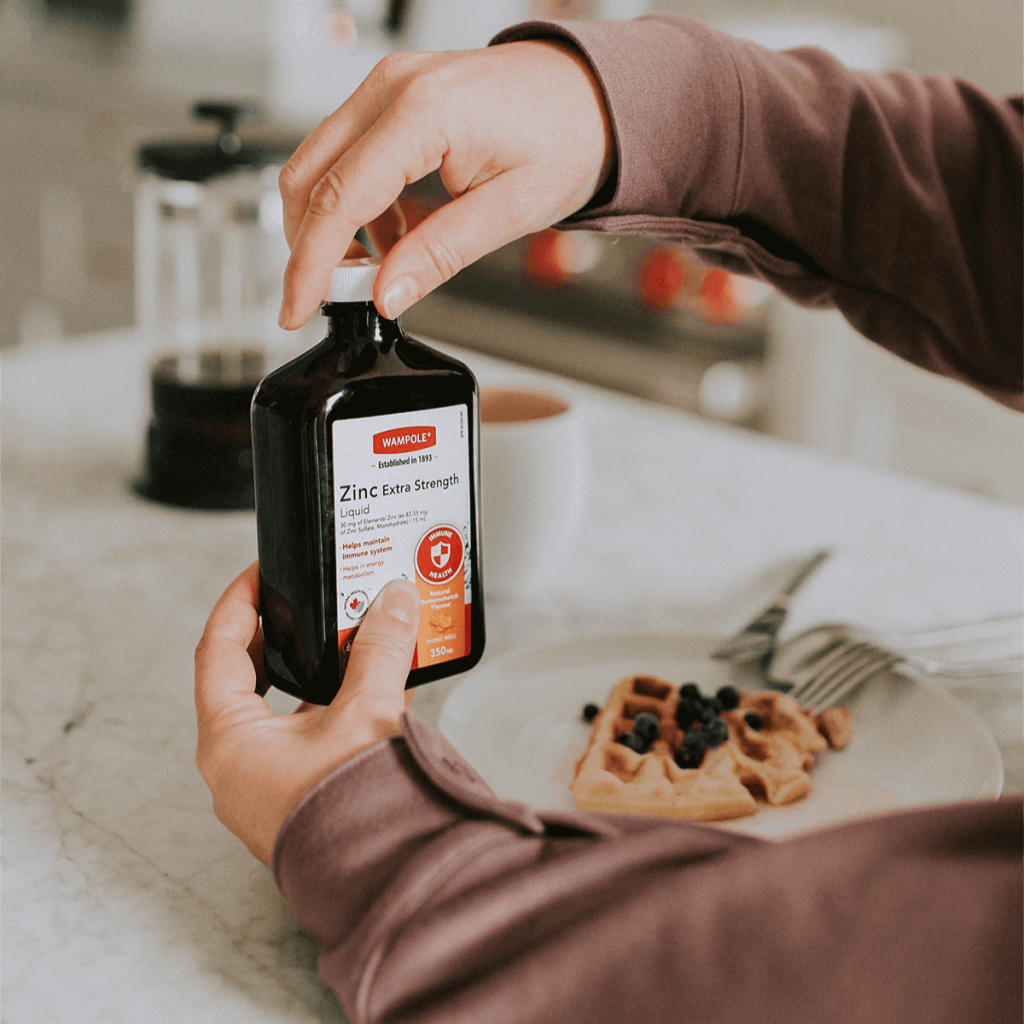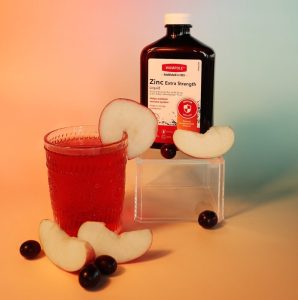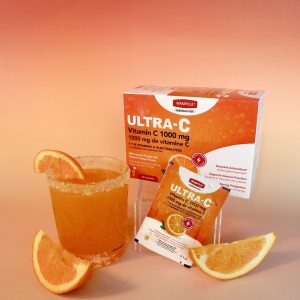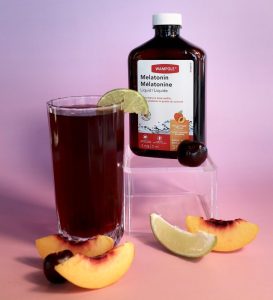The benefits of zinc for your skin
As research progresses, it’s becoming increasingly clear that the foods we eat have a significant influence on the health of our skin. An unbalanced diet can not only have adverse effects on metabolism and lead to weight gain; it also has an impact on the health of skin.[1]
Some nutritional supplements help keep skin healthy by targeting specific conditions like acne and wrinkles.[2]
In this article, we explore the benefits of zinc for your skin.
What is zinc?
Zinc is a mineral salt that is a trace element in our bodies; in other words, it is present in very small quantities. But that doesn’t mean we can’t do without it. Like all such trace elements, our bodies don’t manufacture zinc, so we need to ingest it in the form of food.[3]
What are the uses of zinc?
Zinc is a necessary ingredient for many processes in the body, including[4]:
- gene expression;
- enzymatic reactions;
- immune function;
- protein synthesis;
- DNA synthesis;
- wound healing;
- growth and development.
The role of zinc in healing and skin repair
Skin contains a significant concentration of zinc,[5] which our bodies require to produce keratin and collagen, the structural protein of skin.
In fact, the collagen in our skin is produced by zinc-dependent enzymes called collagenases.
Zinc is important not only for the enzymes that produce Type I and Type III dermal collagen, but also because it gives collagen its durability and stability.
Type I collagen is the kind found most often in the body, while Type III collagen is present in the dermis and the walls of our blood vessels.[6]
Studies have shown that a lower concentration of zinc can lead to lower levels of overall collagen. Because zinc is so abundant in the epidermis, a mild deficiency can lead to roughened skin and slower wound healing.[7]
The impact of zinc on acne
Acne affects up to 9.4% of the world’s population. This condition often results from a combination of factors including obstructed sebaceous (oil-producing) glands, proliferation of bacteria, and inflammation.
Zinc can significantly improve the condition of skin by reducing inflammation, slowing the growth of the bacterium Propionibacterium acnes, a known factor in acne, and modulating the production of sebum.
People with acne have been observed to have lower-than-normal levels of zinc. This underscores the beneficial potential of zinc supplements for easing the symptoms of this condition.[8]
Some studies suggest that topical as well as oral zinc treatments can improve acne.
Wampole zinc supplements for healthy skin
Here are some zinc supplements from Wampole that can help you maintain healthy skin.
Zinc Extra Strength Liquid
Wampole Zinc Extra Strength Liquid is a first-rate product to help you take care of your body. This natural butterscotch-flavoured supplement is formulated to help maintain healthy hair, nails and skin. Its liquid form ensures fast, effective absorption.
Zinc Immunity
Wampole Zinc Immunity delivers the maximum daily dose of this mineral, i.e., 50 milligrams. It is ideal for anyone looking for a supplement that will help to maintain healthy skin, hair and nails. As a bonus, it also aids in immune function maintenance and in energy metabolism, so it contributes to your overall health both inside and out.
Zinc and its benefits for skin health: summing up
Advances in nutritional and dermatological research have shed light on the significant influence of diet on the health of our skin. One key nutrient in this interaction is zinc.
Zinc’s roles in influencing the synthesis of collagen, a fundamental part of skin’s structure, and in helping to treat conditions like acne, are proof that it is much more than a simple mineral.
Whether through foods or supplements, incorporating zinc into our daily lives can be a simple and effective route to maintaining healthy skin.
____________________________________________________________________
Always check the label for specific instructions and restrictions, which may vary from product to product, to ensure correct and safe use.
References
[1]. Healthline, Taylor Jones, Atli Arnarson, https://www.healthline.com/nutrition/12-foods-for-healthy-skin
[2]. Bryn Mawr Dermatology, Rachel Otahal, https://www.brynmawrdermatology.com/dermatologist-approved-supplements/
[3]. Cerballiance, https://www.cerballiance.fr/fr/blog/prevention-nutrition/le-role-essentiel-du-zinc-dans-notre-corps
[4]. Healthline, Amy Richter, Julia Kubala, https://www.healthline.com/nutrition/zinc
[5]. Cerballiance, https://www.cerballiance.fr/fr/blog/prevention-nutrition/le-role-essentiel-du-zinc-dans-notre-corps
[6]. Laboratoires Solage, https://www.solage.fr/dossierssante/quels-sont-les-differents-types-de-collagene–n25#:~:text=Collag%C3%A8ne%20de%20type%201%2C%20(environ,composant%20de%20la%20membrane%20basale
[7]. Aesthetic Medecine, https://aestheticmed.co.uk/site/featuresdetails/the-effect-of-zinc-on-skin
[8]. Healthline, Jilian Kubala, Amy Richter, https://www.healthline.com/nutrition/zinc
